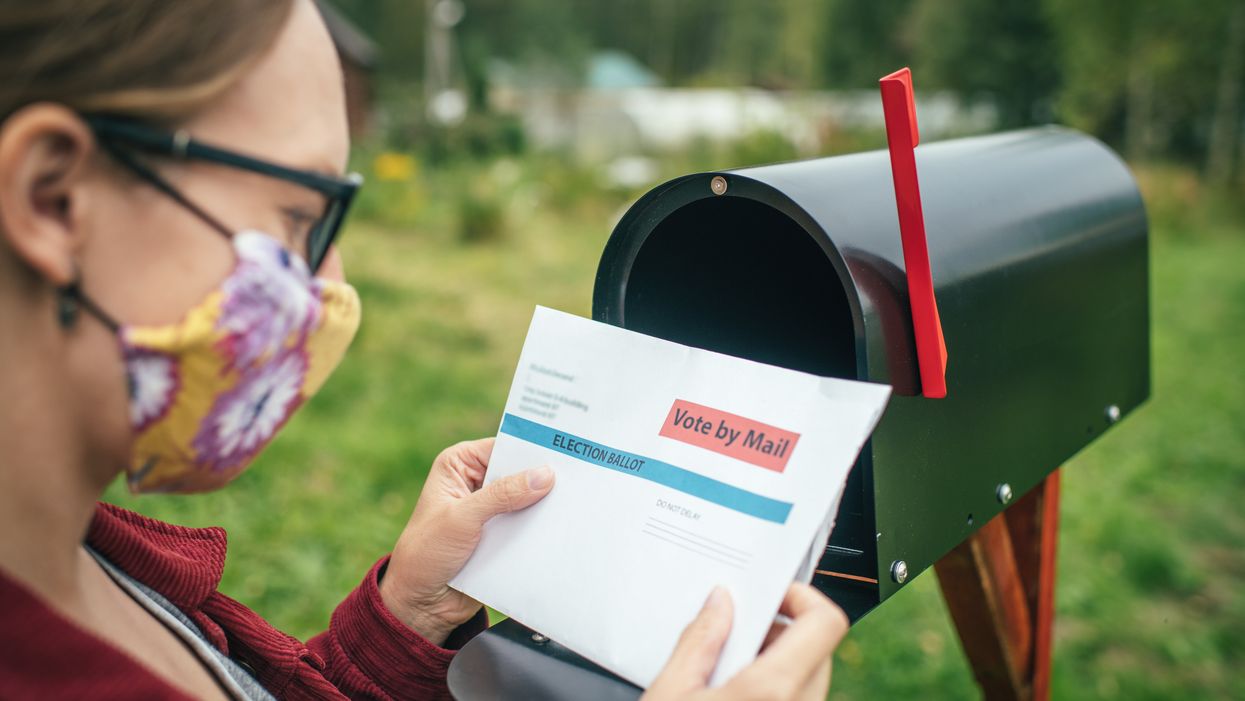The winner of Wisconsin's hard-fought 10 electoral votes will probably be known on or right after Election Day, not the following week.
That's because a federal appeals court has reversed a judge who had decided that absentee ballots postmarked by Nov. 3 should be counted so long as they arrived by Nov. 9. Thursday's ruling by the 7th Circuit Court of Appeals means the cutoff for getting an envelope into the local election office will match the polls' closing time.
Democrats signaled they would take their bid for the six-day extension to the Supreme Court, but the odds there look extremely long — the appeals court's rationale mirrored that of the justices when they rejected another easement this week.
The-back-to-back rulings may not bode well for several other recent courthouse victories relaxing absentee voting rules.
"The Republican side may be far more successful in blocking lower court orders sought by Democrats and voting rights groups seeking to expand voting by mail," Rick Hasen, an election law expert at the University of California, Irvine, wrote for Slate this week. "Although Democrats in particular have crowed about some of their (sometimes partial) victories, things are far from over."
Republicans are appealing similar delayed-in-the mail extensions ordered by courts in Michigan and Pennsylvania, the other most prominent Great Lakes battlegrounds. The combined 46 electoral votes of the three are central to the outcome of the election. President Trump won all of them last time, although each by a fraction of 1 percentage point. Polling now shows former Vice President Joe Biden solidly in the lead in all three — so it's possible the winners will be clear before the stacks of mail are opened.
The extensions were all described by the lower courts as necessary to protect voting rights in an extraordinary year, when Postal Service delays are widespread and a rush of last-minute decision-making to vote by mail is expected in light of the coronavirus pandemic.
But the 2-1 majority for the 7th Circuit disagreed, for two main reasons. Changes to voting rules should almost always be decided by legislatures, not judges, and it's way too close to the election for courts to be stepping in except in extraordinary circumstances. The judges cited the 2006 Supreme Court ruling in Purcell v. Gonzalez as precedent for judges rarely altering election rules close to the election.
"A last-minute event may require a last-minute reaction. But it is not possible to describe Covid as a last-minute event," the majority said. "The fundamental proposition that social distancing is necessary has not changed since March."
The appeals court was echoing Justice Brett Kavanaugh's explanation for why the Supreme Court on Tuesday reversed another appeals court, which cited the risk of Covid-19 exposure in suspending witness requirements for mail-in ballots in South Carolina.
The statehouses of both Wisconsin and South Carolina are in the hands of Republicans who rejected many proposals to ease mail-in voting rules this year.
The Wisconsin ruling also blocked a one-week extension of the deadline for registering, meaning it will remain Oct. 14, and it stopped potential electronic delivery of certain ballots.
In dissent, Judge Ilana Rovner said the Purcell precedent had been applied way too loosely by the Supreme Court in a series of election cases this year, essentially dealing the judicial branch out when it comes to addressing last-minute forms of unconstitutional disenfranchisement.
"It is not unreasonable for Wisconsin voters to view the option of in-person registration and voting as a form of Russian roulette," wrote Rovner, who like the other two 7th Circuit panelists was nominated by a GOP president. "Good luck and G-d bless, Wisconsin. You are going to need it."
Wisconsin generated the first voting chase to reach the high court during the pandemic, during its first peak in April, when the justices ruled 5-4 to reverse an 7th Circuit decision that would have permitted the counting of primary ballots delayed in the mail. Justice Ruth Bader Ginsburg, in one of her final high-profile dissents, said the ruling "boggles the mind" and "I fear, will result in massive disenfranchisement."




















Trump & Hegseth gave Mark Kelly a huge 2028 gift